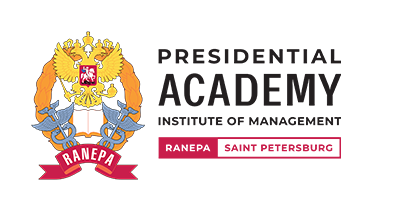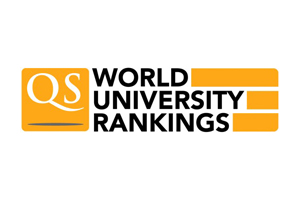Innovation Management in Digital Economy
Non-Degree Program
English language
40 ECTS
Faculty of Economics and Finance
1 Semester
1296 hours
The program provides an in-depth knowledge for managing the implementation of organizational and technological innovations, managing digital business transformation projects and creating startups.
The program is aimed at training qualified managers who are in demand in the modern labor market.
Students acquire competencies to work in a highly dynamic competitive environment, learn to create competitive companies quickly, bring new products to the market, manage their own innovative business and apply virtual methods of communication in the global space. The program puts emphasis on training future executives and consultants to design innovative strategies, market innovations, analyse industries and apply this approach to the digital economy.
ADVANTAGES
CURRICULUM
Compulsory courses (each of 4 ECTS):
— Innovation Management
To stay relevant in today’s dynamic marketplace companies must continually generate new ideas and innovations to remain competitive. Whether it is the Fortune 500 companies that have used innovation to transform their businesses or even start-ups. Innovation has been disrupting markets and altering the nature of industries. According to Innosight’s corporate longevity forecast, half of the S&P 500 is forecasted to be replaced in the next ten years unless they continue to innovate, making it a top priority for executives. The Accenture 2015 Innovation survey concurs stating that
84% of executives consider that their future success depends on innovation. This makes being able to understand and manage innovation a critical skill in every business moving forward.
As future managers and executives this course will provide you with leading-edge research, concepts, theories, insights and tools necessary to inspire and empower you to better manage innovation. It is focused on contemporary topics like lean design, blue ocean strategy, open innovation and design thinking as examples and enables you to gain first-hand experience applying key principles to real world challenges.
— Marketing of Financial Services
Students learn the basic financial marketing techniques and practical approaches used in the banking industry to successfully apply them in their future career in finance.
Learning outcomes:
— understanding the specifics of marketing of financial and banking services and the practical application
— identifying the specific characteristics of banking products and comparing them with standard products
— developed skills of strategic management of financial intermediaries
— studying the Russian banking market, comparing with international ones, analysing current issues and developing ideas to address them
— improved technical and communication skills
Teaching methods: lectures, practical classes, open discussions, case study and project work methods. As a result, students can gain practical experience and apply their knowledge in practice.
— Project Management and Economic Justification
Project management is playing an increasingly important role in a wide range of organisations and disciplines. Its defining features are fixed time schedules, budgetary boundaries, team coordination, specific accountabilities, focus on particular outcomes and collaborative working between project partners. Breakdowns in these aspects are the most frequent source of problems in projects.
This course is designed to equip you with the knowledge, understanding and skills required for successful project design and implementation. Much attention is paid to the economic justification of projects.
Learning how to effectively manage a project is becoming an essential and transferable skill in demand across all industries.
— Digital Economy
Digital economy, digital society, digital transformation of the economy and society. Models and methods of digital transformation. Solow’s paradox.
Digital finance, digital technologies use in financial sector. Digital technologies for financial and stock market. Algorithmic trading. Markets prediction. Blockchain and financial technologies. Decentralized finance.
Digital transformation of the economy. Forms of human’s activity organization. Measurement and management of human’s activity, which performed with digital technologies use. Digital
technologies in production and services. Digital marketing and management. Distributed organizations.
Circular digital economy. Digital technologies for sustainable growth and business development.
Elective courses (each of 4 ECTS):
— Advanced Corporate Finance
The course covers advanced theoretical and applied studying of major issues in Corporate Finance.
The first part of the course is an in-depth exploration of advanced theories used to understand how financing can affect firm value. We begin by exploring the circumstances where the choice of financial structure is irrelevant (the Modigliani-Miller theorem). We then discuss the circumstances where the choice of financial structure has substantial implications for firm value due to for example, taxes, costs of financial distress, agency problems and information asymmetries. We illustrate the concepts with examples and problem sets.
The second part of the course focuses on the real-world applications of corporate finance tools to address issues commonly faced by corporate managers, investors and entrepreneurs. Each week we will focus on a particular issue facing practitioners. Specifically, we will explore individual case studies of problems such as capital budgeting, the design of optimal capital structures and the valuations of start-ups, mergers and private equity buyouts. The relevance of these tools for career pathways in finance, consulting and other sectors will be also discussed.
— Risk Management in Financial Institutions
Financial risk management is especially important for financial institutions as they are systemically important to the economy and the overall financial ecosystem. Banks, insurers and investment managers are the most exposed to financial risk.
Financial risk management tools are the set of systems and processes in place to identify and assess various financial risks as well as formulate, implement and monitor appropriate risk responses. There are several types of financial risk including credit risk, liquidity risk, market risk and interest rate risk in the banking book. Financial risks can be quantified using various analytical methods particularly regression analysis, scenario management and value-at-risk measurement.
— Technological Entrepreneurship and Startups Ecosystems
The creation of societal value and wealth is driven more and more by sophisticated new technologies — through both the increasing pace of technological change and the effective management of high-growth scaling.
This course provides future technological entrepreneurs with the scientific and quantitative managerial skills to successfully engage in business activities such as developing a business idea, commercializing a technology or working as an entrepreneur to drive innovation within a tech-based company. It presents the startup business environment as a complex ecosystem. Entrepreneurial systems thinking is introduced along with a whole company perspective. You will build technology-based managerial and decision-making skills that are applicable across many industries and types of organizations.
— Management Analytics in the Age of Big Data
Big Data and the rise of AI technology have the potential to transform companies, markets and even entire societies. This poses significant questions: what will the managerial landscape look like as data-intensive technologies proliferate? How should managers approach data and statistical analysis in this age?
This course offers students an overview of the economic potential of Big Data and AI. It begins by describing the rise of Big Data and the burgeoning field of AI and proceeds to consider the implications of these new technologies for managers and for society as a whole.
On this foundation students will examine managerial decision-making using data analytics. Big Data does not solve all of managers’ problems; even with increasing amounts of data and better AI, managers still need to make decisions based on an incomplete information (address statistical inference issues) and to distinguish between correlation and causation (address causal inference issues). Finally, students will learn how to apply their new understanding of statistical and causal inference to the construction of regression models.
The course is designed to provide students with an understanding of the foundational elements of data analysis and the use of statistical thinking in the context of managerial decision-making in today’s age of big data.
It is important to note that the course is primarily conceptual and analytical rather than technical. It does not cover programming techniques. The tools developed in the course are the interpretation and evaluation of data analytics, and managerial decision-making based on such analytics.
— Russian as a Foreign Language (8 ECTS)
Contemporary methods of teaching Russian as a foreign language. Contemporary educational technologies for teaching Russian as a foreign language at Beginners level. Phonetics and intonation in teaching Russian as a foreign language. Forming grammar competence when teaching Russian as a foreign language based on communication and activities approach. The lexical aspect in teaching Russian as a foreign language. Game tasks in a lesson of Russian as a foreign language. Text and opportunities for using it in a practical course of Russian as a foreign language. Literary text as a resource for teaching oral communication in a practical course of Russian as a foreign language. Teaching writing and written language. Interactive teaching technologies for Russian oral communication in the lessons of Russian as a foreign language Interactive teaching technologies for Russian oral communication: using videos in the lessons of Russian as a foreign language. Interactive teaching technologies for Russian oral communication in lessons of Russian as a foreign language: using multimedia presentation in lessons of Russian as a foreign language. Multimedia technologies in teaching Russian as a foreign language. Contemporary methods to assess the quality of students’ training.
A student needs to get 28 credits to complete this program
LEARNING OUTCOMES
- Managing the entire process of innovation
- Exploiting different types of data and information thanks to strong analytical skills
- Applying the innovation approach to digital economy, whether in the ICT industry or in the context of digital transformation of any business
Admission requirements:
• level of English – B2
Application deadline:
• 15 May (for winter semester)
• 15 November (for spring semester)
Contacts:
+7 (812) 335-94-94, ext. 7002
Е-mail: ums-sziu@ranepa.ru
St. Petersburg, Pesochnaya Embankment 4, office 404



